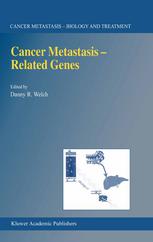

Most ebook files are in PDF format, so you can easily read them using various software such as Foxit Reader or directly on the Google Chrome browser.
Some ebook files are released by publishers in other formats such as .awz, .mobi, .epub, .fb2, etc. You may need to install specific software to read these formats on mobile/PC, such as Calibre.
Please read the tutorial at this link: https://ebookbell.com/faq
We offer FREE conversion to the popular formats you request; however, this may take some time. Therefore, right after payment, please email us, and we will try to provide the service as quickly as possible.
For some exceptional file formats or broken links (if any), please refrain from opening any disputes. Instead, email us first, and we will try to assist within a maximum of 6 hours.
EbookBell Team

4.8
14 reviewsBeing diagnosed with cancer is devastating. But when the cancer cells have to spread to form secondary colonies, the prognosis for the patient is worse. If meaningful improvements in survival are to occur, then control of metastasis will be a foundation. Relatively little is known about the control of the metastatic process at the molecular level. This volume begins to explore our current knowledge regarding the underlying molecular and biochemical mechanisms controlling the metastatic phenotype. While all of the authors attempted to put their findings into a context for translation to the clinical situation, the state-of-the-art does not fully allow this. Nonetheless, we write these summaries of our work as an early effort toward that end. I am grateful to all of the authors who have contributed generously of their time and energies to make this volume a reality. To metastasize, neoplastic cells dissociate from the primary tumor, enter a circulatory compartment (typically lymphatics or blood vasculature), survive transport, arrest, exit the circulation and finally proliferate at a discontinuous site in response to local growth factors. Unless cells accomplish every step of the metastatic cascade, metastases cannot develop. The process is highly inefficient, i. e. ,